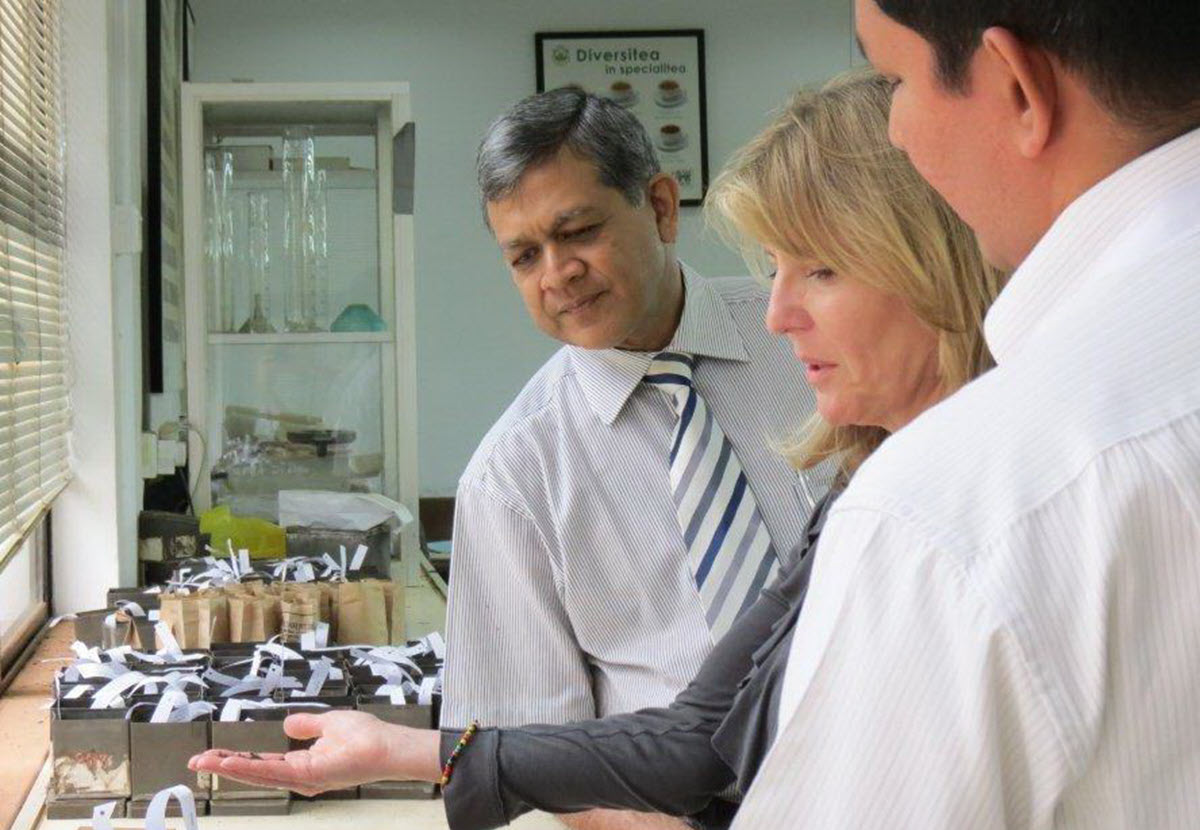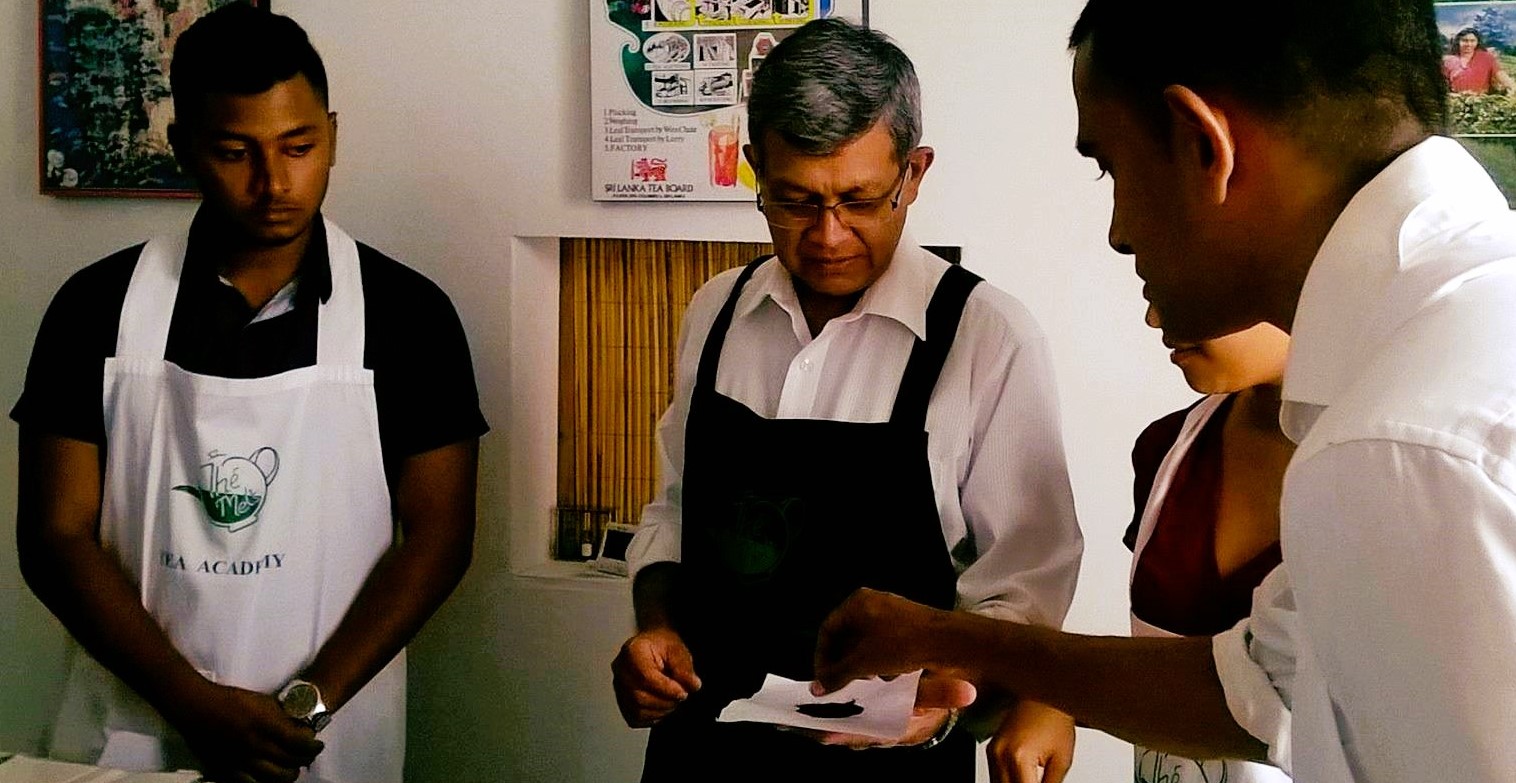Sri Lanka is in turmoil politically and financially; the country of 22 million is struggling as widespread demonstrations continue. Unrest is tied to food inflation exceeding 50%, with critical shortages of cooking gas, fuel, and reliable electricity. The country has defaulted on its foreign debt, and its currency devalues with a credit rating that discourages outside investment. Government bankers are at an impasse in negotiating a bailout from the International Monetary Fund that will depend on difficult reforms, including higher taxes and governance changes. Tea producers are confronting all the above challenges, yet the Ceylon tea brand remains resilient. Last year, the industry generated $1.32 billion in US foreign currency, exporting 300 million tons of tea, of which 270 million was high-value orthodox tea.
Export earnings increased 6.72% during the 2021 calendar year compared to 2020. Every subcategory reported growth, with exports of tea bags growing 84%, tea packets up 10%, sales of bulk tea up 2.5%, instant tea sales of 19.5%, and green tea up 22.8% through December, according to the Export Development Board.
Industry veteran Niraj De Mel was named Chairman of the Sri Lankan Tea Board in June 2022, his second appointment to a position that he previously held in 2004. In this discussion with correspondent Dananjaya Silva, Managing Director at PMD Tea, de Mel explains the challenges and solutions facing Sri Lanka’s tea industry.
Listen to the Interview

Sri Lanka Relies on a Resilient Tea Industry
By Dananjaya Silva | PMD Tea
During his 45 years in tea, Niraj de Mel has worked as a taster, broker, exporter, and educator. He is past chairman of the Tea Exporter’s Association and the Colombo Brokers Association and served as vice chairman of the Colombo Tea Traders Association. He is the founder and director of The Mel’s Tea Academy in Colombo.
Dananjaya Silva – Tea professionals globally say they are happy to see a safe and steady hand on the tiller as you return to steer the Sri Lanka Tea Board. Given the current political situation, how secure is your position?
Niraj de Mel – Well, to start, let me tell you a bit about the developments before my appointment [on June 20]. Come the middle of May, the industry got together, and because they thought it was time, we told the authorities what we knew best and what was best for the industry.
So, arising from that, they also decided on the people best suited best-suited for the positions at the TRI [Tea Research Institute] and the Sri Lanka Tea Board. I was asked to step back into my previous role as chair for obvious reasons. The immediate past chairman went along with this delegation and met the minister [Minister of Plantation Industries, the Hon. (Dr.) Ramesh Pathirana] to discuss these things and told him that after the debacle as a result of a wrong decision on fertilizer, it’s time that we get the feedback from the experts. Plus, the industry will tell them exactly how things should be run. We have been doing this for the last 155 years, and it’s arising from that conversation that I’m in this seat today.
Dananjaya – Now that a new president has been named, will changes in the cabinet likely means a new appointee to the Minister of Plantation Industries post?
Niraj – I sincerely hope that he [Dr. Pathirana] will be reappointed to the position. Of course, there is no issue whatsoever because he and I will get on.
He’s a minister who sizes up things quite well. He’s a learned man being a medical doctor himself. If there is going to be a change in ministers, the Associations will take up with whoever who’s appointed to the position of Minister plantations that you know that I should remain. Be that as it may, I’m here to do the job.
First and foremost, we need to steady the ship.
Dananjaya – The ban on importing chemical inputs, including most fertilizers, was halted in October, but the effects of the setback linger.
Niraj – Mistakes were made, but circumstances that led to that decision have changed. The big development is a result of the Russian-Ukrainian war, a conflict between some of the world’s largest fertilizer suppliers. Fertilizer has since become scarce and prices went sky high, impacting Sri Lanka at a time when our currency itself also depreciated, compounding matters for the average tea farmer. It’s now virtually impossible for him to afford this kind of price.
To address that, the Sri Lanka Tea Board considered an initiative that has been knocking on the door since January. I see from the minutes a request for funds from the promotion levy to be used to facilitate a loan scheme so that farmers get fertilizer to start feeding these bushes, which have been starved for nutrients.
The board has since delivered fertilizer to nearly 100 factories to offer to smallholders and regional plantation companies. They are working to ensure that the estates will have sufficient fertilizer within about one and a half months.
Editors Note: The Hindu reports that India, on July 17, delivered 44,000 metric tons of urea under a credit line extended to Sri Lanka, as part of New Delhi’s ongoing efforts to support the island nation’s farmers and help bolster bilateral cooperation for food security, the Indian High Commission in Colombo said.
Dananjaya – It seems we’ve returned to the days of old during the colonial period when the Planter’s Association essentially told the Governor of Sri Lanka what was good for the country. Because what was good for the planters’ community was good for the country.
Niraj – Absolutely. Absolutely. It’s time actually that all the private sector did that, not only tea. The private sector has long been the engine of growth in this country, be that planting, manufacturing, exports or brokering. All that is well handled by the private sector and the government sector, such as the Tea Research Institute of Sri Lanka, does the research.
Dananjaya – The crisis not only impacts the rural tea sector. Service providers report difficulties obtaining financing, fuel, and reliable electrical power in Colombo, Sri Lanka’s hub for blending, packaging, and shipping. Will you describe how the tea board is addressing these concerns?
Niraj – I think there needs to be some clarification on this. The private sector basically handles it, but we are trying as far as possible to assist. I have tried to instill into the minds of the officials that we have to be an enabling outfit.
Going back to your question No. 2, there’s one item that was missed: the fuel factor. Actually, that has taken precedence over fertilizer now because the collection of leaves as well as bringing the manufactured tea out is essential to run your factories. Exporter functions, particularly the tea bagging sector, where the machines have to be run continuously, all require an uninterrupted power supply. Power cuts that have been prevailing in this country for the last 4-5 months are an encumbrance to the people, as a result of that, now compounded by the fact that there’s fuel scarcity, particularly diesel. So given the availability of fuel we are trying our best to contact all concerned with the right message to ensure that the producers get their fuel quota.
They cannot have it the way they used to have, because the country itself is, you know, is importing fuel ship by ship. The private sector importers, in particular, have stepped in, which is very magnanimous on their part. To fast-track this process, the government has said, well, if you can produce the foreign exchange, you can certainly get the fuel across. So, the private sector exporters banded together to give off whatever they could.
Dananjaya – As new problems have arisen over the course of this year, from power cuts to rationing fuel, the tea industry has drawn on a battle-hardened core of tea professionals who are able to react quickly and make provisions to see that the industry continues to operate.
Niraj – That’s right. That’s right, reaffirming that Sri Lanka tea has for 155 years been one of the most resilient industries in this country.
There will be little disruptions here and there, but the fact of the matter is we are managing, though it’s challenging. There is great unity among the stakeholders, particularly now with these current issues which they had to face together. We started at the beginning of the pandemic back in 2020. Everybody came together in two and a half weeks to quickly convert to an electronic platform to conduct the auctions, which was great. That carries on to this day. The Colombo traders are very, very confident that there will not be a return to the old outcry system. I started life as a broker and enjoyed the outcry system, but the fact-of-the-matter is we have to move with the times. The platform has enabled us to quicken the process, giving buyers, producers, and brokers time to spend on other things.
Cricket is an apt metaphor… Cricket is the only game that stops for Tea, the country might be 74/8, with a bumping pitch and blinding light, but the Tea sector continues to bat on at the crease.
“Play up! Play up! and Play the Game! “
– Niraj de Mel
Dananjaya Silva is the managing director of London-based PMD Tea and a fourth-generation tea man whose family business, P.M. David Silva & Sons, dates to 1945 during the Plantation Raj in Ceylon’s Dimbula Valley.
Related
Link to share this post with your colleagues
Signup and receive Tea Biz weekly in your inbox.


